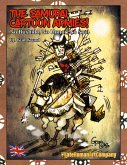In "Organization: How Armies are Formed for War," Hubert Foster meticulously explores the intricate structures and strategic frameworks that underpin military organization. Drawing upon a range of historical contexts, this scholarly work delves into the evolution of armies from ancient times to contemporary forces, employing a blend of narrative-driven analysis and theoretical frameworks. Foster's literary style is both authoritative and accessible, making complex military concepts digestible for a wide audience. The book situates itself within the broader discourse of military studies, addressing how logistical, sociopolitical, and technological factors complicate the formation and effectiveness of armed forces in various epochs. Hubert Foster, a distinguished military historian and strategist, harnesses his extensive background in military operations and organizational theory to craft this pivotal text. With years of experience in strategic planning and defense analysis, Foster's insights are informed by a profound understanding of the challenges of military organization. His previous works have examined the intersection of culture and warfare, making him uniquely positioned to tackle the topics in this book. I highly recommend "Organization: How Armies are Formed for War" to students, scholars, and military professionals alike. Foster's comprehensive research and engaging narrative illuminate crucial aspects of military structure, offering readers valuable perspectives on the mechanisms of power and conflict in the contemporary world.
Dieser Download kann aus rechtlichen Gründen nur mit Rechnungsadresse in A, B, BG, CY, CZ, D, DK, EW, E, FIN, F, GR, H, IRL, I, LT, L, LR, M, NL, PL, P, R, S, SLO, SK ausgeliefert werden.









